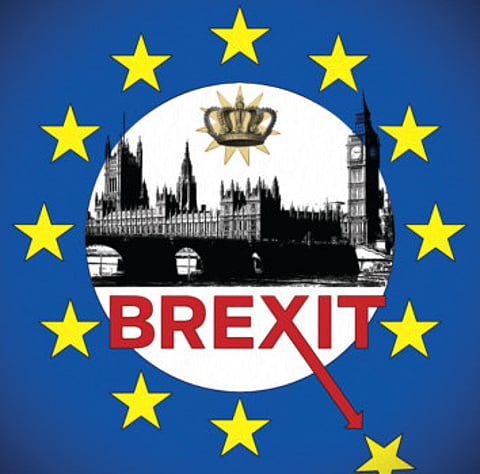Brexit or not, Britain’s parliament reigns supreme
The Supreme Court decision imposes a respect for orderly constitutional forms and requires elected representatives to take full and individual responsibility for their epochal decision

The British Supreme Court’s judgement on Tuesday requiring parliament to authorise Brexit was conservative in the deepest and best sense of the term. Allowing the government to withdraw from the European Union without a parliamentary vote would have enabled the prime minister and her cabinet to change UK law on their own, a violation of parliament’s traditional sovereignty. In practice, if parliament votes in favour of Brexit, the judgement may not slow down the process very much. But the court nonetheless imposed a respect for orderly constitutional forms — and required Britain’s elected representatives to take full and individual responsibility for their epochal decision.
Unlike the High Court, whose judgement it was reviewing, the law lords of the United Kingdom’s highest court avoided high-flown theoretical declarations about the nature of parliamentary sovereignty. Instead, the court presented its ruling as an interpretation of the European Communities Act of 1972, the law that parliament passed to facilitate the incorporation of European law into UK law.
The basic argument urged by the Brexit challengers was that withdrawing from the EU would effectively change UK domestic law — because the 1972 law makes EU law into domestic UK law. According to basic British constitutional principles, only parliament can change domestic laws. The ministers can conduct foreign relations on their own — including signing and withdrawing from treaties — but they’re not supposed to be able to change the legal rights of British subjects.
On the other side, the Tory government maintained that informing the European Union (EU) of Britain’s intention to leave wasn’t a domestic act, but rather an exercise of foreign relations power. It added that the 1972 law didn’t say anything about the legal effects of EU withdrawal. The government acknowledged, of course, that announcing withdrawal would trigger legal consequences. But it pointed out that under the relevant EU treaty, withdrawal would still take two years. In the meantime, the government could introduce legislation in parliament — charmingly known as a “Great Repeal Bill” — that would take care of changes to UK law.
The Supreme Court resolved the case in an 8-3 vote by holding that the true meaning of the 1972 law was that parliament delegated to EU institutions the power to make some domestic UK laws. If the UK left the EU, the court reasoned, the result would be that the 1972 law would no longer be operative. The domestic laws would therefore change. That meant withdrawal would affect UK domestic law and change the existing legal rights of British subjects. It followed that an act of parliament was required.
In a separate analysis, the court also said that the parliaments of Scotland, Wales and Northern Ireland did not have the inherent right to block EU withdrawal by demanding their own votes. The basis for this holding was that parliament has retained its authority to make decisions regarding the devolved parts of the kingdom.
The constitutional upshot of all this was to reaffirm the centrality and essentially absolute sovereignty of parliament when it comes to making the most important decisions in the life of the UK.
Seen from the perspective of Britain’s partly unwritten constitutional law, this outcome was deeply conservative. The idea of parliamentary sovereignty, put into canon in the late 19th century by the scholar A.V. Dicey, goes back centuries, to William Blackstone (1723-1780) and (Dicey thought) even Edward Coke, who died in 1634.
Indeed, the greatest reduction of parliamentary sovereignty in modern British history came from allowing EU law to determine domestic UK law — precisely what the 1972 act did, according to the court. The thrust of the court’s judgement was, therefore, to reinstate the traditional, conservative doctrine of parliamentary sovereignty at precisely the moment that the UK is preparing to throw off the partial sovereignty of the EU.
Brexit supporters therefore shouldn’t be too upset about the judgement. Many of them deeply dislike the idea of Britain ceding sovereignty to Brussels. The Brexit referendum can be seen in symbolic terms as a kind of “Britain first” objection to such concessions.
The UK Supreme Court was reminding Brexit voters that if they want to get back to traditional British sovereignty, they also have to go back to traditional British sovereign institutions — of which the parliament is first and foremost.
That’s good conservatism, the kind grounded in the preservation of tradition that has worked. Such conservatism insists, with the great parliamentarian Edmund Burke, that change should proceed gradually, stepwise, not by leaps.
Referendums are populist. Parliamentary votes express the traditional values of a representative government. There is important value in making parliament vote for Brexit. It’s not just that individual members will have to take a stand. The longest-running democratic institution in the world will have to give its imprimatur to a fundamental national decision.
— Bloomberg
Noah Feldman is a Bloomberg View columnist.
Sign up for the Daily Briefing
Get the latest news and updates straight to your inbox



